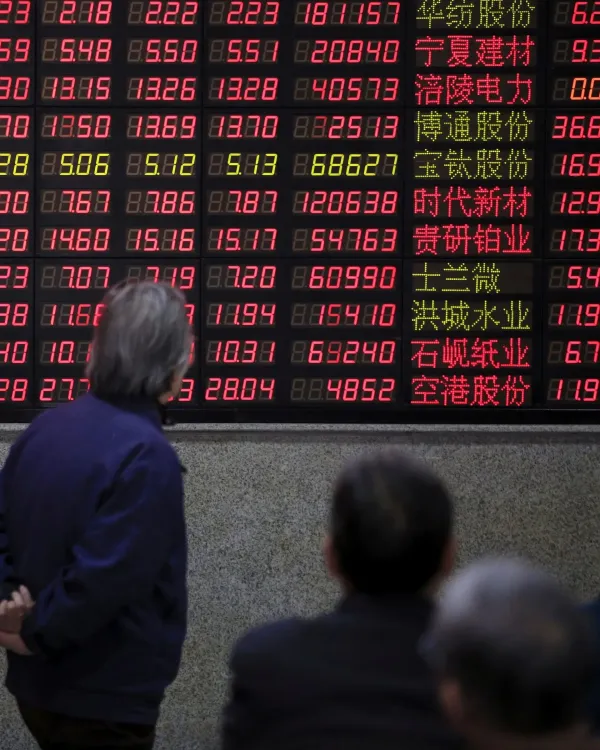China’s $11 trillion stock market tests Xi’s growth push, Trump’s tariff gamble
admin | August 17, 2025 9:22 PM CST

China's $11 trillion stock market is once again in the spotlight, not for spectacular gains, but for persistent underperformance that is worrying both Beijing and Washington.
As per Bloomberg, the Chinese equity market has failed to deliver returns for households, making it a key reason why consumers save more and spend less, a structural issue that complicates President Xi Jinping's growth plans and President Donald Trump's trade war strategy.
What's the problem with China's stock market?
Despite a recent rally, Chinese indexes have only just recovered to levels seen after the dramatic bubble burst a decade ago. A $10,000 investment in the S&P 500 ten years ago would have more than tripled in value, while the same in China's CSI 300 benchmark would have added only around $3,000.
According to long-time China watchers quoted by Bloomberg, the problem is structural. When exchanges were set up 35 years ago, their primary purpose was to channel household savings into funding state-owned enterprises and infrastructure, rather than delivering returns to investors. That bias has left retail investors disappointed and skeptical.
Why does this matter now?
Xi Jinping is depending on household consumption to drive China's economy toward its 5 per cent growth goal, especially amid intensifying tariff battles with the US. But a lack of faith in the stock market has pushed households toward saving instead of spending.
China's household savings rate is extraordinarily high at 35 per cent of disposable income, compared with much lower levels in the US, UK, and Japan. Without confidence in equities as a vehicle for wealth creation, consumers are unlikely to loosen their wallets.
Investor sentiments
"China's capital market has long been a paradise for financiers and a hell for investors," Liu Jipeng, a securities veteran, told Bloomberg.
Many retail investors say they often lose money when chasing rallies. State-owned enterprises often prioritize government goals over shareholder returns, while private firms are accused of weak investor protection. IPO scandals and delistings, such as the case of Beijing Zuojiang Technology, have further eroded trust.
Reforms and progress, but not enough
Beijing has tried to improve oversight:
- IPO screening tightened - Poor-quality listings are being curbed.
- Dividend payouts rising - In 2024, Shanghai and Shenzhen-listed firms distributed 2.4 trillion yuan ($334 billion) in cash dividends, up 9 per cent from the previous year.
- Buybacks increasing - Though still far smaller than in US markets.
READ NEXT
-
White hair will be disappeared forever in 7 days! ‘These’ Ayurvedic remedies will be very effective, hair will be black

-
Symptoms of deficiency and methods of identification – Obnews

-
Amazon Appstore: Android Users To Lose Apps After August 20 – Will Your Unused Coins Be Refunded?

-
Nine in ten Indian Enterprises Consider Security and Privacy Risks Stall Ai Scaling | Technology news

-
Such an opportunity for purchase will not be again; Large discounts on the most expensive iPhone of Apple, priced by less than 20 thousand
